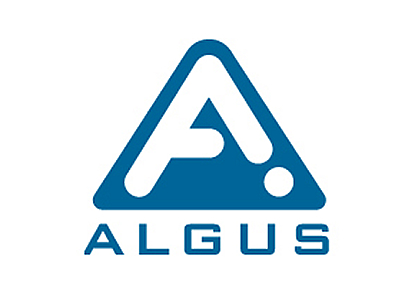Revolutionizing Efficiency: The Future of Packaging Automation in Modern Manufacturing
As the manufacturing landscape evolves, the integration of technology into production processes has become paramount, particularly in the realm of packaging. Recent industry reports indicate that the global packaging automation market is projected to reach USD 70 billion by 2026, growing at a compound annual growth rate (CAGR) of 7.5% from 2021 to 2026. This growth is fueled by the increasing need for efficiency, cost reduction, and improved safety in manufacturing operations. Packaging automation not only streamlines production lines but also enhances product quality and minimizes waste, aligning with sustainability initiatives. As manufacturers seek to adapt to rapidly changing consumer demands and competitive pressures, embracing advanced packaging automation solutions will be critical. This paper delves into the transformative impact of packaging automation on modern manufacturing, exploring innovative technologies and strategies that are set to redefine operational efficiency in the coming years.
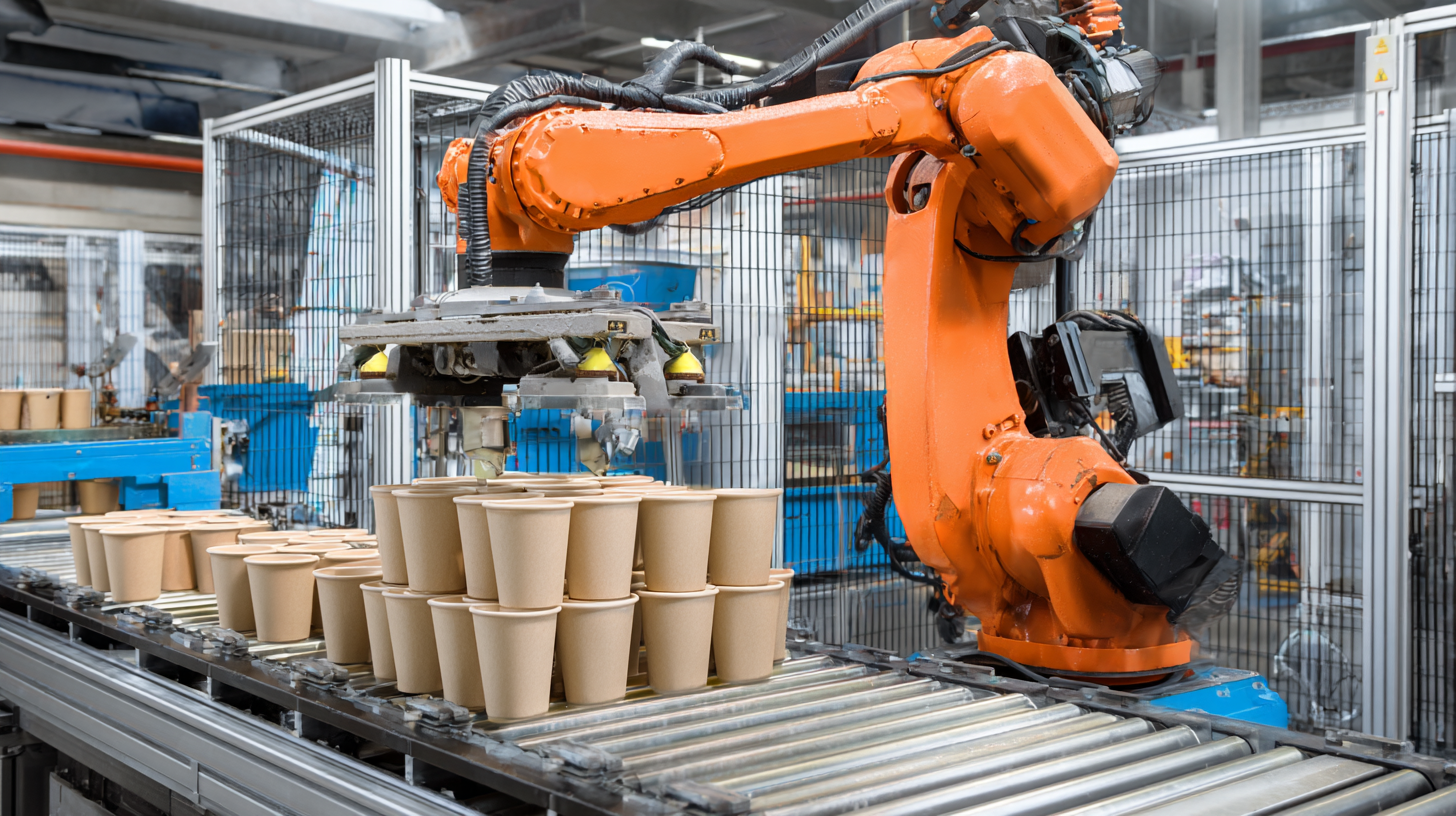
Harnessing IoT Technologies for Enhanced Packaging Automation in Manufacturing
The integration of IoT technologies into packaging automation represents a pivotal shift in modern manufacturing. As industries strive for greater efficiency, the adoption of smart systems—powered by sensor networks and connectivity—allows for real-time monitoring and data analysis. This advancement not only enhances operational precision but also significantly reduces labor costs, addressing the rising demand for automated solutions. The burgeoning packaging automation market, estimated to grow substantially, underscores the necessity for manufacturers to embrace these innovations to remain competitive.
Moreover, enterprises are leveraging IoT to create connected factories that optimize production processes. By harnessing artificial intelligence and smart components, organizations are setting new standards for efficiency and productivity. This digital transformation is evident in various sectors, highlighting the importance of aligning technology with strategic education and infrastructure. As a result, companies can revolutionize their packaging operations, ensuring they are well-equipped to meet the challenges and opportunities of the future. The potential for growth in the packaging automation solutions market is further fueled by these advancements, paving the way for a more innovative and connected manufacturing landscape.
This chart illustrates the projected efficiency improvements in packaging automation across four quarters, leveraging IoT technologies for enhanced performance in modern manufacturing.
Artificial Intelligence: Transforming Decision-Making in Packaging Processes
Artificial Intelligence (AI) is rapidly reshaping the landscape of packaging processes in modern manufacturing. With technologies like machine learning, computer vision, and predictive analysis, organizations can achieve unprecedented levels of efficiency and accuracy. These advancements allow manufacturers to optimize their packaging operations, reduce waste, and enhance product quality. By leveraging AI-driven insights, companies can make informed decisions that directly impact their productivity and sustainability efforts.
Tips: To effectively implement AI in your packaging processes, start with clearly defined goals and metrics to assess performance. Engage cross-functional teams to ensure that the adoption of AI aligns with overall business objectives. Furthermore, invest in training for your workforce to effectively utilize these new technologies, fostering a culture of innovation and continuous improvement.
One notable approach is using Fuzzy-based multi-criteria decision-making tools to evaluate AI-enabled Environmental, Social, and Governance (ESG) strategies within sustainable manufacturing systems. This innovative framework allows businesses to navigate complex decision-making scenarios, ensuring that sustainability remains a pivotal aspect of their operations. By integrating AI with ESG principles, manufacturers not only drive efficiency but also contribute to long-term ecological and social well-being.
Streamlining Supply Chains: The Role of Automation in Packaging Logistics
In today's fast-paced manufacturing environment, the role of automation in packaging logistics has become increasingly crucial. By integrating advanced automation technologies, companies can streamline their supply chains, reducing lead times and increasing productivity. Automation not only enhances the speed of packaging processes but also ensures consistency and accuracy, which are vital in meeting customer demands efficiently. As businesses look to maintain a competitive edge, investing in automated packaging solutions can lead to significant improvements in operational efficiency.
**Tips for Implementing Packaging Automation:**
First, assess your current packaging operations to identify bottlenecks that could be alleviated through automation. Consider factors such as space, labor costs, and equipment effectiveness. Second, prioritize scalability in your automation solutions. Choose technologies that not only address current needs but can also adapt to future demands as your production scales. Finally, invest in training for your personnel to ensure they are equipped to work alongside new automated systems, maximizing the benefits of your investment.
As the industry continues to evolve, embracing automation in packaging logistics is no longer a choice but a necessity for manufacturers. By making informed decisions and leveraging these technological advancements, businesses can achieve a seamless supply chain that supports their growth objectives.
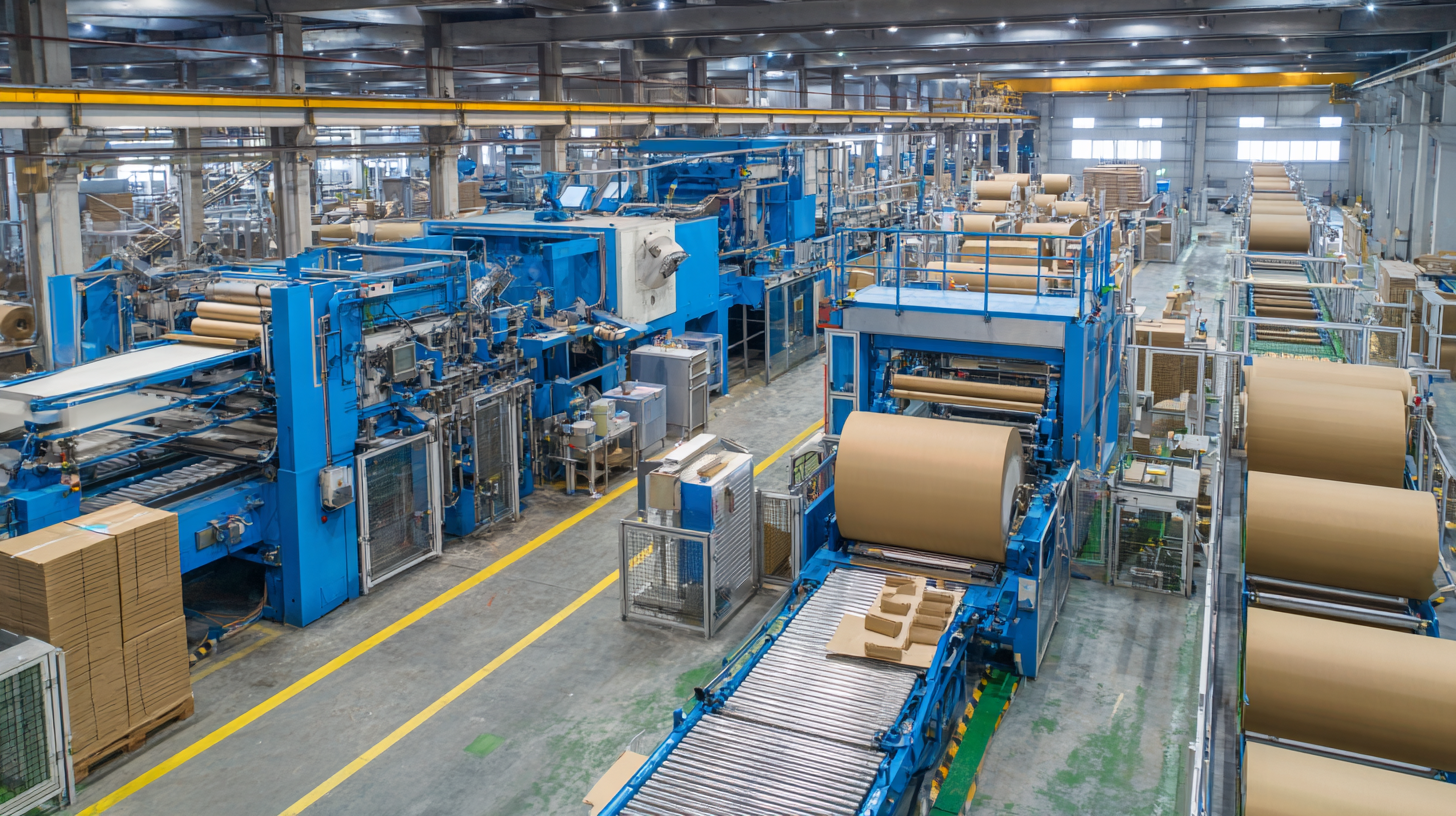
Sustainable Packaging Solutions: Balancing Efficiency and Environmental Impact
Sustainable packaging solutions are increasingly becoming a critical focus in modern manufacturing, as industries strive to balance efficiency with environmental responsibility. According to a report by Smithers Pira, the global sustainable packaging market is projected to reach $700 billion by 2025, reflecting a growing commitment to eco-friendly practices. Companies are now turning to innovative materials such as biodegradable plastics and recycled paper to reduce their carbon footprint, while also improving packaging efficiency.
Implementing automation in the packaging process can significantly enhance sustainable efforts. Advanced technologies such as robotic arms and AI-driven systems reduce material waste and increase packaging speed. Research from McKinsey suggests that adopting automation in packaging can boost productivity by up to 30% while using fewer resources. Manufacturers are finding that these advancements not only improve sustainability but also lower costs in the long run.
**Tips:**
1. Evaluate your current packaging materials and consider transitioning to sustainable alternatives that align with your production needs.
2. Invest in automation technologies that optimize your packaging line, reducing waste while maintaining speed and efficiency.
3. Collaborate with suppliers who prioritize sustainability to ensure that your entire supply chain adheres to eco-friendly practices.
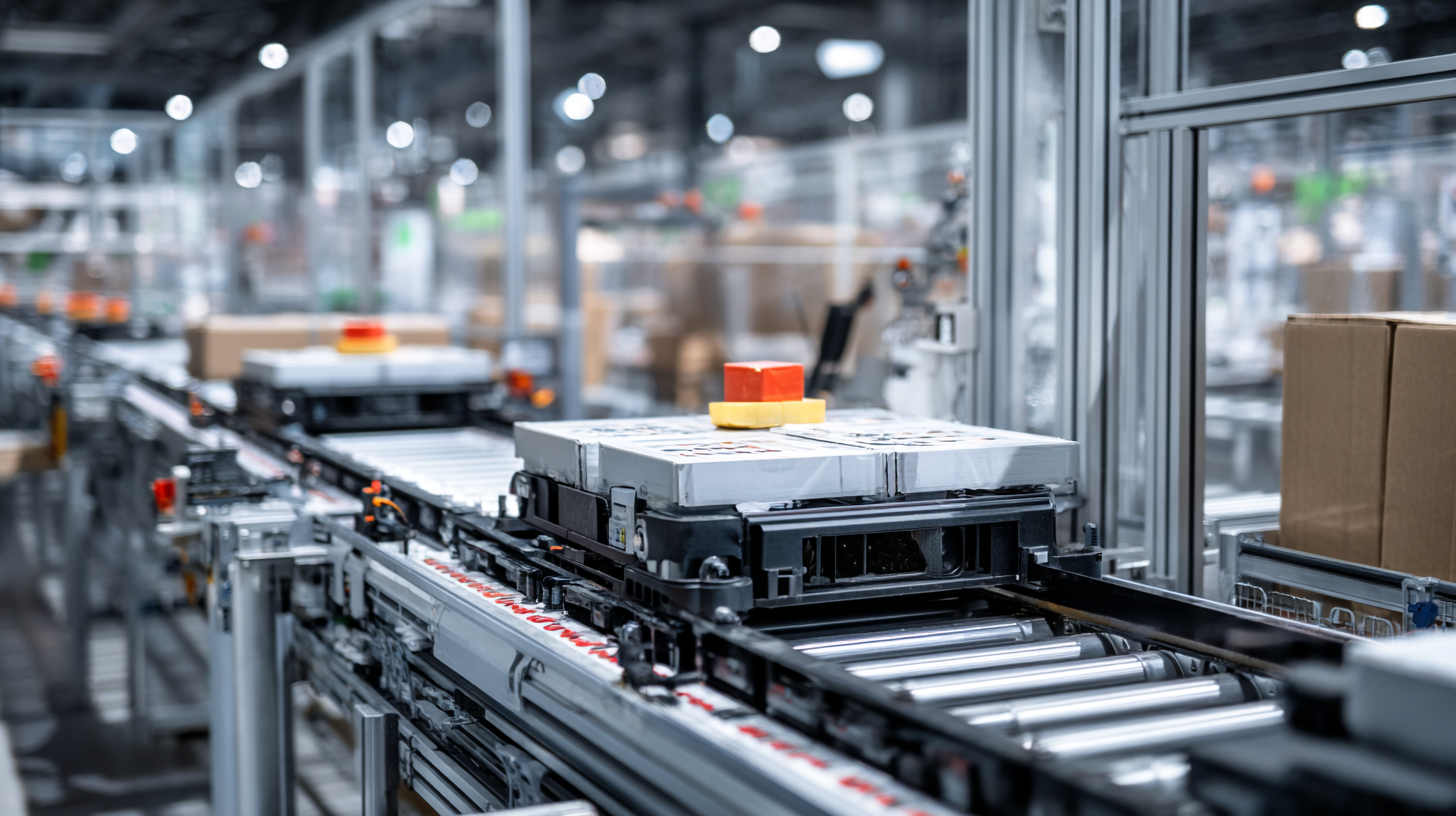
Integrating Robotics and Automation for Precision in Modern Packaging Systems
The integration of robotics and automation has fundamentally transformed modern packaging systems, providing unprecedented levels of precision and efficiency. As consumer demands evolve and production speeds increase, manufacturers are turning to advanced robotic solutions that streamline the packaging process. Automated robotic systems can handle delicate products with the utmost care, utilizing sophisticated vision systems to ensure that every item is packaged with accuracy. This capability not only minimizes waste but also enhances the overall quality of the packaging, thus improving brand reputation and customer satisfaction.
Moreover, the use of artificial intelligence (AI) in conjunction with robotics allows for real-time adjustments and optimizations in packaging lines. AI systems can analyze performance data and predict potential issues, facilitating proactive maintenance and reducing downtime. This synergistic relationship between robotics and automation leads to a more agile manufacturing environment, where packaging systems can quickly adapt to changes in product types or volumes. As a result, businesses can achieve higher throughput and lower operating costs, making them more competitive in an increasingly fast-paced market. The future of packaging automation promises to revolutionize how products are delivered to consumers, ensuring that efficiency and precision go hand in hand.
Revolutionizing Efficiency: The Future of Packaging Automation in Modern Manufacturing
| Automation Technology | Efficiency Increase (%) | Cost Reduction (%) | Precision Improvement (%) | Implementation Time (Months) |
|---|---|---|---|---|
| Robotic Arm Automation | 30 | 25 | 95 | 6 |
| Automated Sorting Systems | 40 | 20 | 90 | 8 |
| Packaging Robotic Systems | 35 | 18 | 92 | 7 |
| Automated Labeling Machines | 25 | 15 | 88 | 5 |
| Smart Packaging Solutions | 50 | 30 | 97 | 12 |
Related Posts
-

Unlocking the Future of Packaging Automation with Digital Innovations
-

Innovative Examples of Packaging Equipment Transforming Global Supply Chains
-
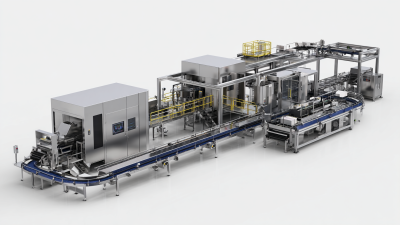
5 Essential Tips for Choosing the Right Packaging Equipment to Boost Efficiency
-

Common Issues Faced by Businesses Using Food Packaging Machine
-
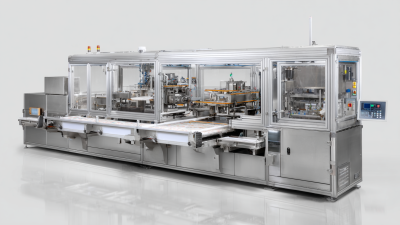
7 Essential Tips to Optimize Your Tray Sealer Packaging Machine Efficiency
-

How to Optimize Blister Thermoforming for Maximum Efficiency and Cost Savings in Packaging
